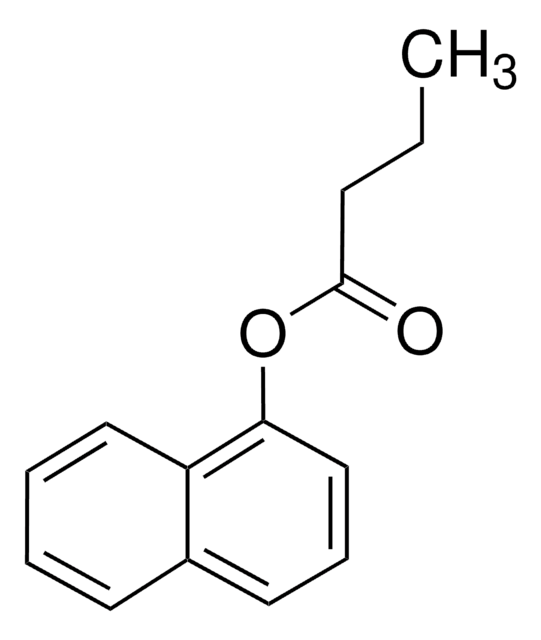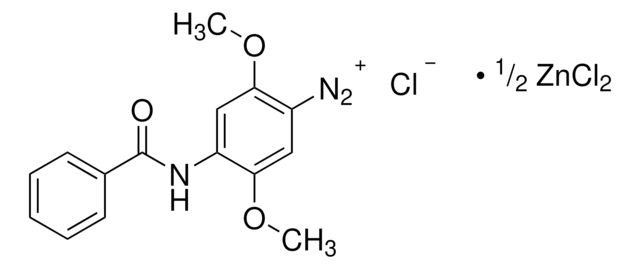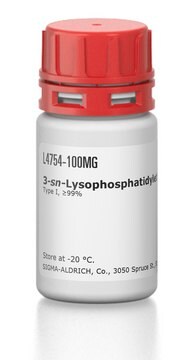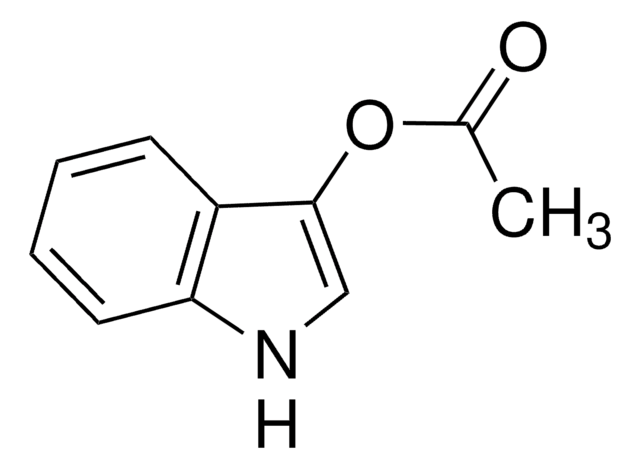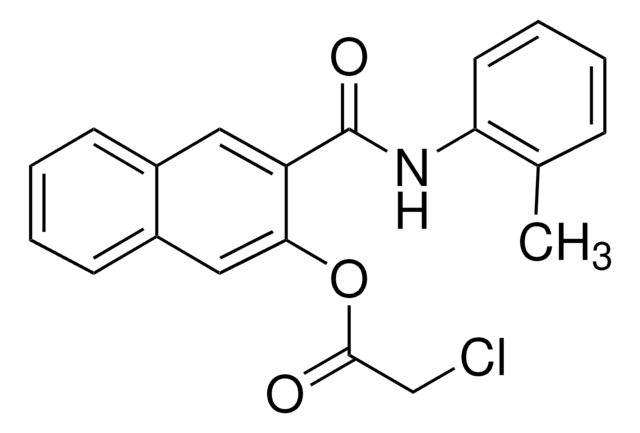N8505
1-Naphthyl acetate
≥98% (C)
Synonym(s):
α-Naphthyl acetate
About This Item
Recommended Products
Quality Level
Assay
≥98% (C)
form
crystals
mp
43-46 °C (lit.)
storage temp.
−20°C
SMILES string
CC(=O)Oc1cccc2ccccc12
InChI
1S/C12H10O2/c1-9(13)14-12-8-4-6-10-5-2-3-7-11(10)12/h2-8H,1H3
InChI key
VGKONPUVOVVNSU-UHFFFAOYSA-N
Looking for similar products? Visit Product Comparison Guide
General description
Application
Signal Word
Danger
Hazard Statements
Precautionary Statements
Hazard Classifications
Eye Dam. 1
Storage Class Code
11 - Combustible Solids
WGK
WGK 3
Flash Point(F)
235.4 °F
Flash Point(C)
113 °C
Choose from one of the most recent versions:
Already Own This Product?
Find documentation for the products that you have recently purchased in the Document Library.
Customers Also Viewed
Articles
The Fries rearrangement reaction is an organic name reaction which involves the conversion of phenolic esters into hydroxyaryl ketones on heating in the presence of a catalyst. Suitable catalysts for this reaction are Brønsted or Lewis acids such as HF, AlCl3, BF3, TiCl4, or SnCl4. The Fries rearrangement reaction is an ortho, para-selective reaction, and is used in the preparation of acyl phenols. This organic reaction has been named after German chemist Karl Theophil Fries.
Our team of scientists has experience in all areas of research including Life Science, Material Science, Chemical Synthesis, Chromatography, Analytical and many others.
Contact Technical Service
